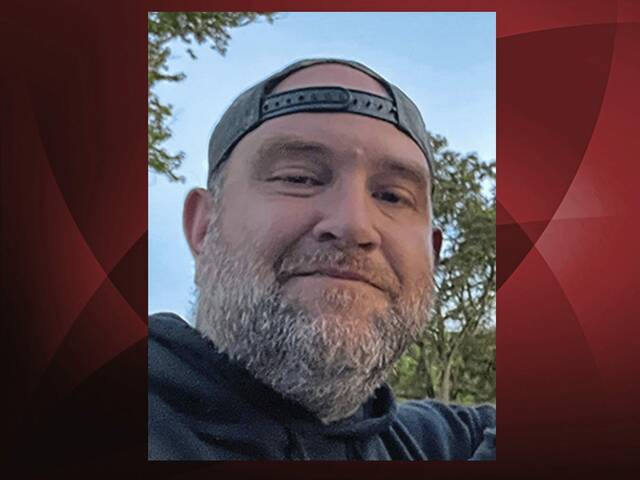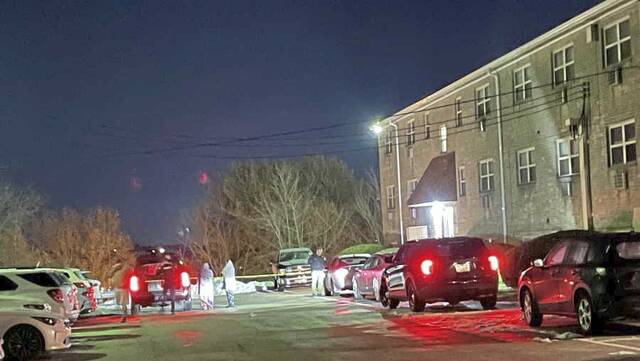There has never been more need for cybersecurity , given growing concerns about cyberattacks on businesses and institutions and the threat of meddling on behalf of other countries.
Brad Messner of New Stanton is teaching potential cybersecurity professionals at Greensburg’s Seton Hill University while continuing his own education in the field, with the help of a grant-supported scholarship at Indiana University of Pennsylvania.
Messner is just one of five participants, and the sole recipient at IUP, in an initial pilot scholarship funded through the National Center of Academic Excellence in Cybersecurity (NCAE-C) Program. The program is managed by the National Security Agency.
“The NSA recognizes the need for talented and passionate university faculty to both teach future cybersecurity professionals as well as research upcoming trends, and I am proud to represent both IUP as well as Western Pennsylvania nationally and globally with this award,” Messner said. “It’s the first time it’s ever been offered.”
300% increase
Cybersecurity threats are “constant and growing,” Messner said, noting measures against possible cyberattacks must be continuously updated. ”We always have to think about what comes next.
“The threat of cyberattacks has increased over 300% since the covid-19 pandemic. With the increase in the virtual workforce, we now have an increase in cybersecurity threats.”
Messner, 43, is on track to complete his doctorate in business and management information systems at IUP in 2023. During the final two years of that work, through a $203,130 grant from the NCAE-C Program, he will have his tuition and fees covered and will get a stipend for living expenses. He’ll also receive funds for books and for attending one cyber-related conference and completing a related certificate.
“This initiative fits perfectly with IUP’s commitment to our doctoral mission, to research, and to strong teaching and mentoring,” said Hilliary Creely, dean of the School of Graduate Studies and Research. “It’s a very exciting opportunity for students interested in this field and is an important step in helping to address the critical shortage in the cybersecurity workforce.”
Messner’s doctoral dissertation is a critical analysis of what impact the use of blockchain — a decentralized ledger of cryptocurrency transactions — has on the security of financial technology systems.
That topic, he said, reflects the mix of subjects he teaches at Seton Hill as well as his own training in both information technology and business.
Shifting gears
After an initial career in the corporate world, he shifted gears in 2017 — joining the faculty at Seton Hill, where he teaches courses in computer science as well as cybersecurity and data analytics.
A 1998 alumnus of Hempfield Area Senior High, Messner completed his undergraduate degree — in business management and information science — in 2001 at the University of Pittsburgh at Greensburg. In 2015, he earned his MBA, with a focus on information systems, at IUP.
Messner said there is a need among businesses to have not only cybersecurity analysts, but also someone with additional qualifications, such as an MBA, who can manage those analysts.
“The business world is full steam ahead, adding new technologies,” he said. “Very few are stopping to look to see if there is an impact on the security side.”
Messner worked for 15 years in the travel technology field, traveling abroad as he focused on improving antiquated technology systems. His academic publications include “AI and the Travel Booking Process.”
He then started his own global software company, providing customized services and data analysis toolkits for corporations.
“I just got to a point where I was tired of the hustle and (hectic pace) of that world and wanted something different,” he said of his move to teaching at a university — which, he acknowledged, is counter to prevailing market pressures.
“With the direction that the corporate world is going, salaries have become so inflated and cybersecurity is so in demand that people are leaving higher education to go into the corporate space,” he said. “We don’t have enough (cybersecurity) teachers.
“The NSA is stepping in and is willing to help fund the education of these educators. We need people going in and staying in this field.”
“The net result will be a greater pipeline of qualified cybersecurity professionals for both government and industry,” said Waleed Farag, director of IUP’s Institute for Cybersecurity. Faraq co-authored the proposal for the scholarship funding, with two IUP colleagues: management professor Prashanth Bharadwaj and economics professor David Yerger.
Future plans
After he completes his doctorate, Messner said, he will be required to teach for two years at an institution of higher learning that is recognized as a National Center of Academic Excellence in Cybersecurity. IUP is one of 16 universities in Pennsylvania that have that designation.
Seton Hill isn’t among them but is considering applying for that same designation, said Jennifer Reeger, the university’s director of communications and media relations.
Seton Hill introduced a bachelor’s degree in cybersecurity in 2017, adding an MBA specialization in cybersecurity risk management this fall semester.
In 2018, Seton Hill partnered with the National Cyber-Forensics & Training Alliance, a Pittsburgh-based nonprofit focused on identifying, mitigating and neutralizing cybercrime threats globally. That relationship provides internship and research opportunities for Seton Hill students.
IUP began offering its bachelor of science in computer science/cybersecurity track and a minor in cybersecurity in 2002. The track includes instruction on cybercrime detection and investigation, as well as loss prevention.
Over the past five years, IUP has provided scholarships to 37 students pursuing bachelor’s degrees in cybersecurity. The scholarships were funded through the Department of Defense, which guaranteed positions to the recipients upon graduation.
IUP’s Institute for Cybersecurity has secured more than $15 million in federal funding since 2005. That includes more than $1 million to enhance cybersecurity training for middle school students and teachers through a GenCyber program. More than 450 students and teachers have completed GenCyber camps since 2016.
Though immersed in academic work at two universities, Messner makes time to devote to his local roots. He assists with the business end of his family’s New Stanton bookkeeping and tax preparation firm.
“I live 5 miles from the house I grew up in,” he said.








